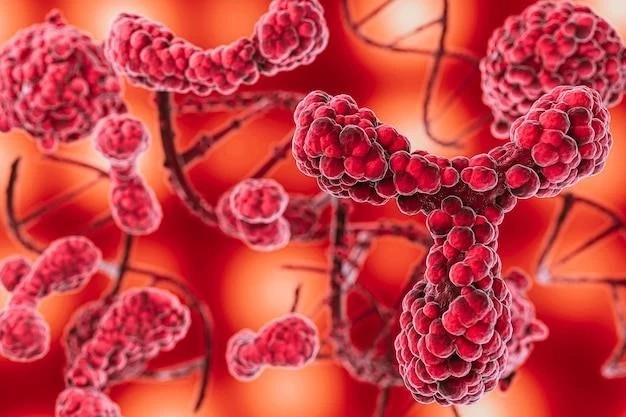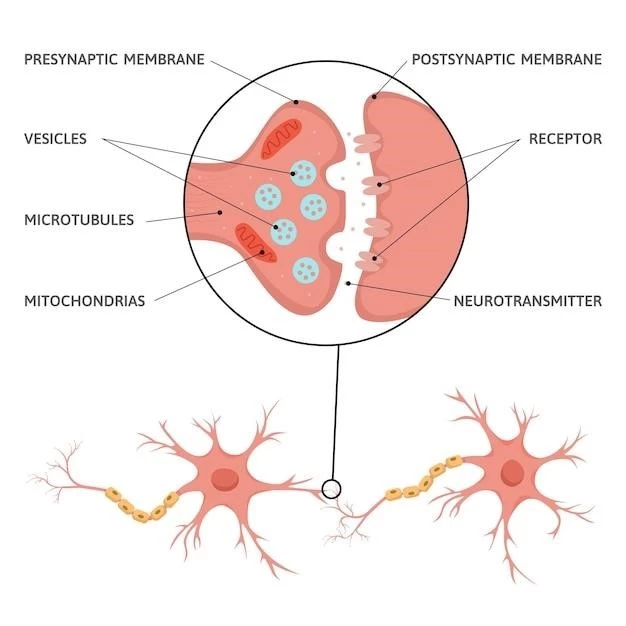Overview of Neurofibromatosis‚ Type IV‚ of Riccardi
Neurofibromatosis‚ Type IV‚ of Riccardi⁚ A genetic disorder with skin pigmentation changes and non-cancerous nerve and skin tumors. Learn more below.
Definition and Characteristics
Neurofibromatosis‚ Type IV‚ of Riccardi is a genetic disorder characterized by skin pigmentation changes and the development of non-cancerous nerve and skin tumors. This rare condition may present with symptoms like ataxia‚ tremors‚ and back pain. Learn more about this unique genetic disorder and its clinical manifestations below.
Etiology of Neurofibromatosis‚ Type IV
Neurofibromatosis Type IV‚ characterized by skin and nerve tumors‚ results from genetic mutations affecting nerve cell growth and skin pigmentation regulation. Learn more below.
Genetic Basis
Neurofibromatosis‚ Type IV‚ of Riccardi is a genetic disorder caused by mutations impacting nerve cell growth and skin pigmentation regulation. These genetic changes lead to the development of non-cancerous nerve and skin tumors. Learn more about the underlying genetic factors contributing to this rare condition below.
Clinical Presentation of Neurofibromatosis‚ Type IV‚ of Riccardi
Neurofibromatosis‚ Type IV‚ of Riccardi presents with symptoms such as ataxia‚ tremors‚ and back pain‚ along with skin and nerve tumors. Early diagnosis and management are crucial. Learn more below.
Symptoms and Signs
Neurofibromatosis‚ Type IV‚ of Riccardi may manifest with symptoms such as skin pigmentation changes‚ ataxia‚ tremors‚ and back pain‚ alongside the development of non-cancerous nerve and skin tumors. Early recognition of these signs is crucial for prompt diagnosis and appropriate management. Consult a healthcare provider for further evaluation and guidance on potential treatment options.
Diagnosis and Evaluation of Neurofibromatosis‚ Type IV
Diagnosing Neurofibromatosis‚ Type IV‚ involves recognizing symptoms like ataxia‚ tremors‚ and back pain‚ and evaluating skin and nerve tumors. Consult a healthcare provider for proper assessment and diagnostic procedures.
Diagnostic Criteria
The diagnosis of Neurofibromatosis‚ Type IV‚ of Riccardi is based on clinical criteria such as the presence of multiple cafe-au-lait spots‚ neurofibromas‚ and specific bone dysplasia. Furthermore‚ a first-degree relative with Neurofibromatosis Type I may indicate a predisposition to this condition. Consult with a healthcare provider for a comprehensive evaluation and accurate diagnosis.
Management and Treatment Options
Effective management of Neurofibromatosis‚ Type IV‚ of Riccardi involves medical interventions tailored to address symptoms such as ataxia‚ tremors‚ and back pain‚ as well as the progression of skin and nerve tumors. Consult with healthcare professionals to explore suitable treatment options and develop a personalized care plan to enhance overall well-being.
Medical Interventions
Management of Neurofibromatosis‚ Type IV‚ involves individualized medical interventions to address symptoms like ataxia‚ tremors‚ and back pain‚ as well as the potential progression of nerve and skin tumors. Treatments may include medications‚ surgical procedures‚ and monitoring strategies to optimize patient well-being and quality of life. It is essential to work closely with healthcare providers to determine the most suitable treatment approach for your specific clinical needs.
Prognosis and Complications
Understanding the prognosis of Neurofibromatosis‚ Type IV‚ of Riccardi involves recognizing potential risks like the development of malignant nerve and skin tumors. Early detection and management can help mitigate complications and improve long-term outcomes. Consult with healthcare professionals for personalized guidance on navigating the challenges associated with this complex condition.
Potential Risks and Long-Term Outlook
Neurofibromatosis‚ Type IV‚ of Riccardi carries potential risks such as the development of malignant nerve and skin tumors‚ which can impact long-term health outcomes. Timely monitoring and appropriate interventions are crucial to managing complications and improving the overall prognosis. It is essential to engage in regular evaluations with healthcare providers to address any emerging challenges and ensure proactive care for optimal long-term health.

Genetic Testing for Neurofibromatosis‚ Type IV
Genetic testing can aid in confirming a diagnosis of Neurofibromatosis‚ Type IV‚ of Riccardi based on specific genetic mutations contributing to the condition. Consult with healthcare providers to discuss the importance and availability of genetic testing to provide valuable insights into the underlying genetic factors associated with this disorder.
Availability and Importance
Genetic testing for Neurofibromatosis‚ Type IV‚ of Riccardi is crucial for confirming diagnosis based on specific genetic mutations. Understanding the availability and significance of genetic testing can provide valuable insights into the underlying genetic factors contributing to this complex disorder. Consult with healthcare providers to discuss the importance and accessibility of genetic testing in guiding treatment and management decisions for individuals affected by Neurofibromatosis‚ Type IV.
Collaborative care involving various healthcare professionals is essential in managing Neurofibromatosis‚ Type IV‚ of Riccardi. Effective communication and coordination among specialists‚ genetic counselors‚ primary care providers‚ and therapists can optimize patient outcomes. Establish a comprehensive care team to ensure holistic support and individualized treatment plans.
Interprofessional Team Strategies for Care Coordination
Collaborative approaches involving diverse healthcare professionals are essential for optimizing patient care in managing Neurofibromatosis‚ Type IV‚ of Riccardi. By fostering effective communication and coordination among specialists‚ genetic counselors‚ primary care providers‚ and therapists‚ a comprehensive and personalized care plan tailored to individual needs can be developed. These interprofessional team strategies aim to enhance treatment outcomes and ensure a holistic approach to addressing the complexities of this genetic disorder.
Research and Advancements in Neurofibromatosis‚ Type IV
Stay updated on the latest research and breakthroughs in understanding Neurofibromatosis‚ Type IV‚ of Riccardi to ensure optimal care and treatment. Seek information from reputable sources to access advancements that may positively impact management strategies and patient outcomes.
Recent Studies and Breakthroughs
Ongoing research on Neurofibromatosis‚ Type IV‚ of Riccardi has led to recent studies focusing on the genetic basis and clinical management of this condition. Stay informed about the latest advancements to enhance patient care and potential treatment strategies. Keeping abreast of breakthroughs in understanding this disorder can aid in more effective diagnostic and therapeutic approaches. Discuss any recent findings with your healthcare team to explore how these developments may impact your care.
Support Resources for Patients and Families
Access valuable support resources for individuals and families affected by Neurofibromatosis‚ Type IV‚ of Riccardi to help navigate the complexities of this genetic disorder. Utilize informational platforms and engage with organizations dedicated to providing assistance‚ guidance‚ and community connections for improved understanding and management of the condition. Seek out reputable resources to access comprehensive support tailored to your specific needs.
Organizations and Informational Platforms
Explore dedicated organizations and informational platforms that offer crucial support and resources for individuals and families impacted by Neurofibromatosis‚ Type IV‚ of Riccardi. These organizations provide valuable information‚ educational materials‚ and community networks to help enhance understanding‚ access care options‚ and foster a supportive environment for those dealing with this genetic disorder. Connect with these resources to empower yourself with knowledge and assistance in managing the challenges associated with Neurofibromatosis‚ Type IV.

Conclusion
As you navigate the complexities of Neurofibromatosis‚ Type IV‚ of Riccardi‚ it is essential to stay informed about the latest advancements‚ engage with supportive resources‚ and collaborate with a multidisciplinary healthcare team. By leveraging genetic testing‚ accessing informational platforms‚ and embracing collaborative approaches‚ you can enhance your understanding of this genetic disorder and work towards optimal care and management. Remember‚ staying proactive and well-informed is key to managing Neurofibromatosis‚ Type IV‚ effectively.
